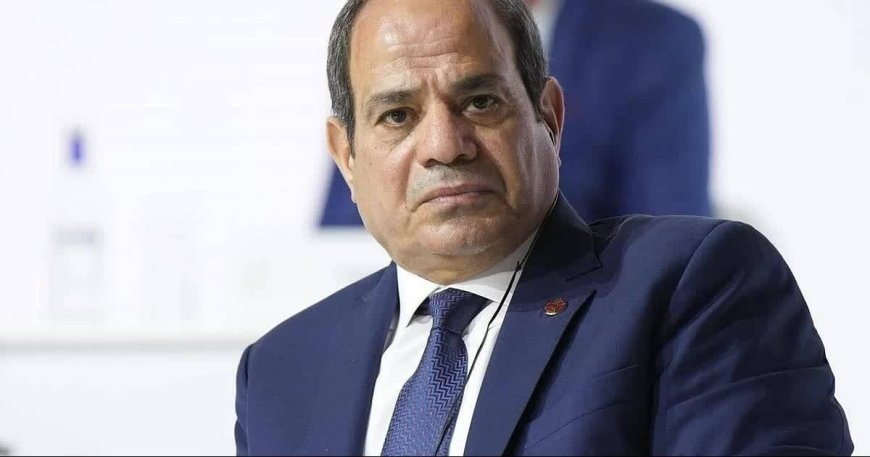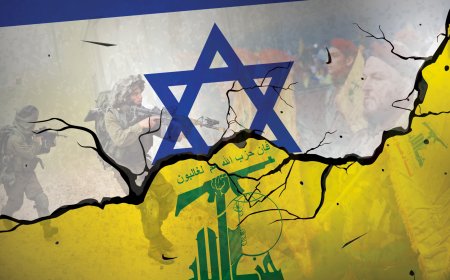The Rafah Crossing: A Lifeline for Gaza, Hindered by Egypt's Reluctance
Over the course of the past two weeks, the Operation Al-Aqsa Storm culminated in a resounding victory for the Palestinian resistance against the Israeli occupation. In the aftermath of their ignominious defeat, the Zionist occupying forces have resorted to an escalation of the already suffocating blockade on Gaza, unleashing their barbarous aerial bombardments towards the innocent populace.

Regrettably, despite expectations of a more sympathetic stance from Egypt, this neighboring Arab government has rather made it more difficult for much-needed humanitarian aid to enter the beleaguered enclave of 2.2 million people. Of particular concern is the Rafah crossing, situated on the southern border of the Gaza Strip, adjacent to Egypt. This crucial crossing point represents one of the two terrestrial gateways connecting the Gaza Strip with the outside world, offering an alternate passage to the Erez crossing located in northern Gaza.
Egypt, in collaboration with Israel, has maintained an all-out siege of land, air, and sea routes for an astounding seventeen years. This stringent stance has drastically limited the flow of necessary products into Gaza while also preventing Palestinian citizens from crossing the border. Egyptian authorities have always defended their strict border controls by invoking North Sinai security imperatives. Recent reports from the United Nations highlight Egypt's reluctance to reopen the Rafah crossing, a decision seemingly driven by apprehensions surrounding the potential mass exodus of hundreds of thousands of Palestinians. Fearing an influx that could result in the permanent settlement of Palestinians within its boundaries, Egypt strives hard to avoid such a scenario.
Egyptian President Abdel Fattah El-Sisi has underscored that the ongoing conflict aims not only to combat Hamas, the dominant political movement in the Gaza Strip, but also to put pressure on the civilian population, driving them to seek sanctuary in Egypt. El-Sisi has warned that such a situation might undermine the Middle East's peace, particularly in the northern Sinai Peninsula. The Egyptian government's reluctance arises from their fear that Israel seeks to scuttle hopes for an independent Palestinian state by permanently expelling Palestinians from their ancestral homelands. El-Sisi indicated that the massive exodus might lead to Palestinian resistance fighters infiltrating Egypt's Sinai Peninsula and launching fresh attacks on occupied Palestine.
Such a scenario would surely undermine Egypt's and Israel's 40-year-old peace accord, as President El-Sisi has issued a stark warning, highlighting the potential ramifications of Palestinian fighters establishing a presence in Sinai. He cautions that this scenario could lead to Sinai becoming a launching pad for attacks against Israel, while Israel might respond by invoking self-defense to launch strikes against Egypt. Since Hamas assumed control of Gaza in 2007, Egypt has aligned itself with Israel's blockade, scrupulously restricting the entry of products and the movement of inhabitants. Furthermore, Egypt has taken measures to dismantle the intricate subterranean network of tunnels that facilitated the entry of goods into besieged Gaza.
On the other hand, Egypt has had a geopolitical need to establish a buffer zone between Hamas and the Sinai Peninsula. Cairo has warned that any military achievement by Hamas might act as an inspiration for Egyptian Islamic organizations. As a result, the embargo on the Gaza Strip is deemed by many observers to support both Egyptian and Israeli objectives. Throughout Palestinian history, displacement has been a recurring plight. Approximately 700,000 Palestinians were forcibly removed from their homes during the 1948 conflict before Israel's establishment, an ominous event known as the Nakba, which means "catastrophe" in Arabic. Another 300,000 Palestinians were displaced during Israel's occupation of the West Bank and Gaza Strip in 1967. Today, the number of Palestinian refugees and their descendants surpasses 6 million, with a sizable proportion residing in camps throughout the West Bank, Gaza, Lebanon, Syria, and Jordan.
The Palestinian diaspora has expanded, with many refugees now settling in Arab countries in the Persian Gulf and Europe. Officials in Cairo have voiced grave concern about the potential implications of an influx of Palestinian refugees from Gaza entering Egypt. The country's concern is heightened by Israel's unwillingness to accept the return of refugees during the 1948 war, as well as its rejection of Palestinian refugee repatriation as part of any peace accord. Cairo fears that it may bear the long-term burden of hosting a large number of displaced Palestinians, echoing the bitter experiences of the past. The prospect of opening the border to all Palestinians, rather than solely providing humanitarian aid to Gaza, raises concerns among many Egyptian officials. They worry that such a move could inadvertently pave the way for a permanent Israeli reoccupation of the evacuated Gaza Strip, ultimately shifting the responsibility of the refugee crisis onto Cairo, which is grappling with an unprecedented financial crisis.
These fears gain credibility since Israel has previously advocated ceding Egyptian land in order to create a Palestinian state in the Sinai. Egypt's state-run media has been vocal in highlighting that a mass evacuation of Gaza would effectively extinguish the aspirations for a viable Palestinian state. Additionally, it argues that such a move would absolve Israel of its legal obligations as an occupying power, further complicating the already intricate dynamics of the conflict. The rise of far-right parties under Israeli Prime Minister Benjamin Netanyahu has amplified Arab anxieties. Their bellicose rhetoric advocating for the annihilation of Palestinians has contributed to heightened fears. Even some right-wing Zionist politicians have advocated for the complete destruction of Gaza and the forced eviction of its residents. Within the Israeli Parliament, Knesset, there have been voices calling for a new mass expulsion of Palestinians similar to that of the 1948 war.
Meanwhile, President El-Sisi has proposed that Israel consider settling Palestinians in its Negev desert, which shares a border with the Gaza Strip, as an alternative solution. The delicate balance between political, humanitarian, and security factors remains precarious as the battle in Gaza expands. The repercussions of Egypt's fears about a possible flood of Palestinian refugees, along with the shifting dynamics in Israeli politics, highlight the complex nature of the crisis. The migration of Palestinians to the North Sinai region raises significant concerns for Cairo. The area lacks the necessary infrastructure to accommodate a substantial increase in population, exacerbating an already challenging situation as Egypt grapples with an economic crisis. According to a recent United Nations report, Egypt currently hosts approximately 9 million refugees and migrants, including around 300,000 Sudanese who have sought asylum in the country this year owing to the ongoing conflict in their homeland. This substantial influx of refugees represents a critical red line for President El-Sisi, particularly as he gears up for re-election in December. Egyptian lawmakers view it not only as a security risk but also as an insurmountable strain on Egypt's already precarious economy, heavily reliant on aid and loans from the International Monetary Fund.
Notably, Egypt has been struggling with soaring inflation, which reached over 40% in August. The United States recently decided to freeze financial aid to Egypt due to concerns over its human rights record under El-Sisi's leadership, as well as the indictment of Senator Bob Menendez on charges related to alleged bribes from individuals linked to the Egyptian government. This further worsens Egypt's economic predicament and underscores the challenges it faces in addressing any refugee crisis. While Egypt's historical position as an Arab world leader against Zionist forces is now something in history, expectations remain for Egypt to fulfill its obligations as a Gaza Strip neighbor. Nations around the globe expect Egypt to play a key role as a mediator, alleviating the misery and hardships faced by Gaza's afflicted populace. The instability of the Egypt-Israel peace treaty, the economic crisis, and the possible consequences of the Palestinian exodus all necessitate careful attention and strategic solutions as Egypt navigates these perplexing dynamics.













































